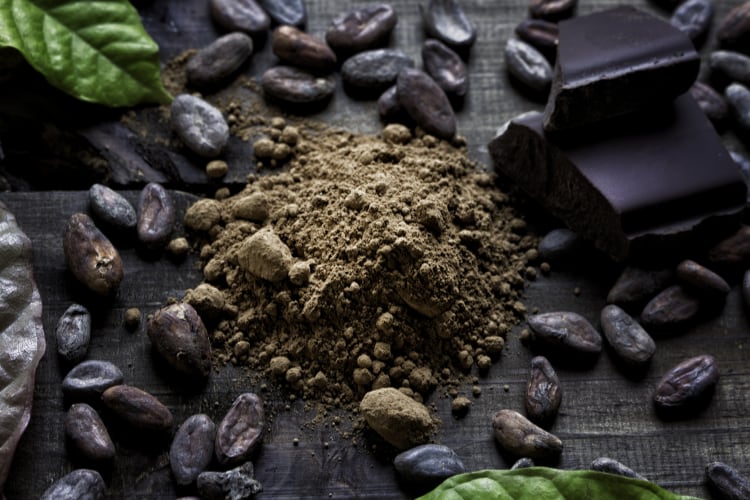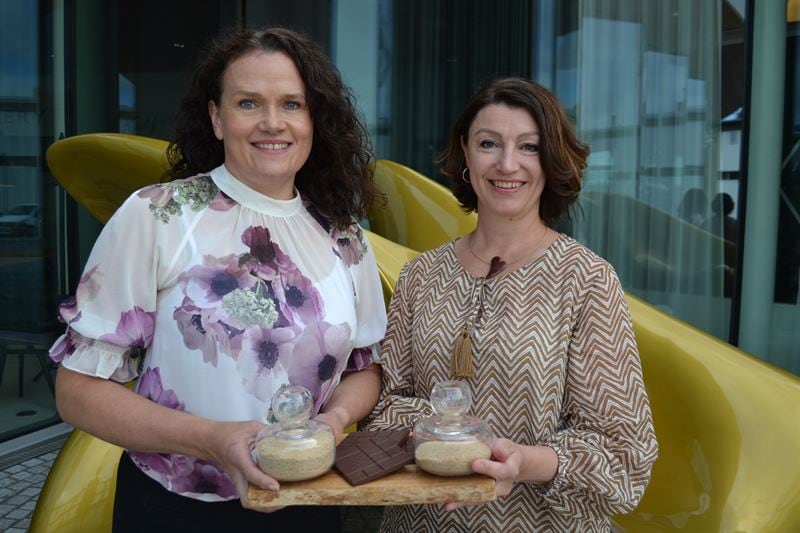PRONATEC Swiss Cocoa Production is an entirely organic production plant, the first of its kind in Switzerland, that will process around 15,000 tonnes of organic cocoa beans a year. The cocoa is sourced directly from smallholder farming cooperatives and, the company believes, its approach is well positioned to meet growing demand for sustainably produced foods.
“With the new plant combined with our direct sourcing from small-farmers we can much better meet the growing demand: The trend towards organic and fair trade certified products, especially towards stricter labels such as Bio Suisse or Demeter and the trend towards traceability from farm to table,” CEO David Yersin told FoodNavigator. “More and more consumers are not only looking for sustainable products but wanting to know exactly where the ingredients come from,” the Swiss organic and fair-trade pioneer believes.
While Yersin conceded that this demand is coming under pressure given the current inflationary environment, he nevertheless believes the long-term prospects for sustainable, traceable food are solid.
“We are indeed seeing shifts in the market, consumers seem to buy differently. They are facing price increases in food, petrol and energy, stretching their daily budget,” the cocoa executive reflected. “Branded organic products and organic shops are suffering, however less expensive organic private labelled products from the big retailers still seem to grow. We do not believe that the long-term trend towards sustainable food will be broken, but temporarily slowed down.”
Underpinning this structural shift in consumption is a growing awareness of the negative impact that food production can sometimes have, Yersin suggested. “The cocoa sector regularly faces negative press, be it for child and slave labour or deforestation and pesticide contamination of the rainforest. That is why we are convinced that more and more food producers and consumers want to buy cocoa from sustainable sources. We are ready to meet this growing demand and to do our part to ensure, that an increasing share of cocoa can be grown and processed sustainably.”
Traceable and transparent production
Having its own cocoa processing plant is an important step for PRONATEC. It means that all stages of the value chain are now in its hands, from procuring beans from small-scale farmers, through fermentation and exporting the sale of finished products.
The company's 'unique' direct sourcing model means every product can be traced back to the smallholder who grew the cocoa. Moreover, semi-finished cocoa products are processed in 'strictly separated' batches. Each consignment of beans is handled separately, there is no mixing during production runs. This means the plant meets the 'strict criteria' of organic and Fairtrade certification.
“It is the first production plant in Switzerland to make all three semi-finished products: cocoa mass, cocoa butter and cocoa powder. Because we only process organic cocoa beans, there is no possibility of any mixing with conventionally cultivated raw ingredients. And we offer a large number of organic and Fairtrade certifications,” Yersin noted.
“Our target customers are mainly food companies around the world, looking for certified cocoa products. These can be chocolate makers, milk processing companies, the baked goods industry and ice-cream producers. Our cocoa butter is also very much in demand from manufacturers of natural cosmetics.”
Yersin explained that the high level of traceability that PRONATEC delivers allows it to meet the growing demand among food companies – and consumers – for supply chain clarity.
“Traceability is getting more and more important in the food industry, also for food safety reasons. As we are selling organic certified products, we always had to have a full traceability for our product range,” he noted.
The trend towards stricter labelling standards
The PRONATEC CEO suggested one thing driving this demand from the market is the move towards 'stricter' labelling requirements, such as Bio Suisse and Demeter.
As an organic supplier, does PRONATEC welcome this push? ”Yes and no,” we were told.
“On the one hand it makes our business more complex and many customers find it difficult to know and assess the difference between the various labelling standards. On the other hand, we welcome the trend towards stricter labels, as they help to promote higher environmental and social standards and, in this way, better protect nature and support small farmers.”




